Dell servers have consistently been at the forefront of the server industry, known for their reliability, performance, and innovative features. In this comprehensive guide, we will explore the best Dell servers available today, catering to a range of needs from small businesses to large enterprises. Whether you are looking for the best Dell servers for virtualization, the most powerful Dell server, or the best Dell server for a small business, Dell has a solution to meet your requirements.
One of the standout options for businesses is the best Dell server for virtualization. Virtualization has become a cornerstone of modern IT infrastructure, allowing multiple virtual machines to run on a single physical server. Dell's PowerEdge servers are particularly well-suited for this purpose, offering robust performance and scalability. The best Dell servers for virtualization are designed to handle high workloads efficiently, ensuring smooth operation and optimal resource utilization.
For those seeking the best Dell computer servers for a variety of applications, the PowerEdge series provides a wide array of choices. These servers are engineered to deliver top-notch performance, whether you need a powerful database server, a reliable web server, or a versatile application server. The most powerful Dell server in this lineup can handle the most demanding tasks with ease, making it an excellent choice for enterprises with intensive computing needs.
Small businesses often require servers that are both cost-effective and capable. The best Dell server for small business strikes a balance between affordability and performance. These servers are designed to support essential business applications, data storage, and network management, ensuring that small businesses can operate efficiently without breaking the bank.
When it comes to specific roles, such as domain controllers, Dell has tailored solutions. The best Dell server for domain controller duties offers reliability, security, and the performance needed to manage network resources and user authentication seamlessly. Similarly, the best Dell server for VMware ESXi provides the compatibility and performance required for running virtualized environments smoothly.
The latest Dell PowerEdge servers continue to set industry standards with their innovative features and exceptional performance. Whether you are in search of the best Dell home server for personal use or the best Dell PowerEdge server for your enterprise, Dell’s offerings are versatile and powerful, designed to meet a wide range of needs. From the best Dell servers for virtualization to the best Dell servers for small businesses, Dell's comprehensive lineup ensures that there is a perfect server for every scenario.
In conclusion, when considering the best Dell servers, it is essential to evaluate your specific needs and choose a server that offers the right balance of performance, reliability, and scalability. Dell's PowerEdge servers, in particular, stand out as some of the best in the market, providing solutions for virtualization, domain control, and much more.
Best dell servers
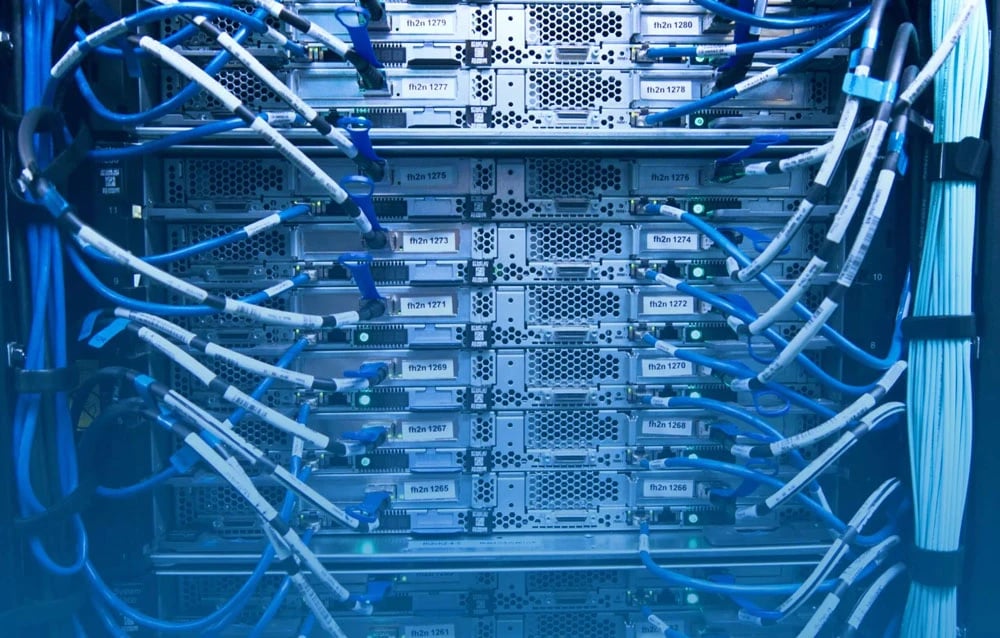
1. Dell PowerEdge R760 Server
The Dell PowerEdge R760 Server, and Dell PowerEdge T440 stands out as a premier choice among the best Dell servers, offering unmatched performance, scalability, and reliability. Below is a detailed section-by-section description of its features and advantages.
Processing Power
At the core of the Dell PowerEdge R760 lies its exceptional processing capability. This server supports the latest Intel Xeon Scalable processors, providing up to 28 cores per processor. This robust processing power ensures that the server can handle intensive workloads and complex computational tasks efficiently, making it one of the best Dell servers for high-performance computing and demanding enterprise applications.
Memory Capacity
The Dell PowerEdge R760 excels in memory capacity, supporting up to 8TB of DDR4 RAM. This extensive memory support is crucial for running memory-intensive applications and large datasets without performance bottlenecks. Such capabilities make it the best Dell server for virtualization, allowing multiple virtual machines to operate seamlessly on a single physical server, thus optimizing resource utilization.
Storage Flexibility
Storage versatility is a significant advantage of the Dell PowerEdge R760. It accommodates a mix of NVMe, SAS, and SATA drives, providing flexible storage options that can be tailored to specific business needs. This makes it one of the best Dell servers for small businesses that need scalable and adaptable storage solutions. The inclusion of RAID technology further enhances data protection, ensuring that critical data is secure and accessible.
Networking Capabilities
The Dell PowerEdge R760 features robust networking capabilities, with multiple high-speed network ports, including 10GbE and 25GbE options. These high-speed connections facilitate rapid data transfer and seamless network integration, making the R760 an excellent choice for use as a domain controller. The advanced networking features ensure reliable and efficient communication across the network, supporting smooth operations and data management.
Security Features
Security is a paramount consideration for the Dell PowerEdge R760. It incorporates Dell’s Cyber Resilient Architecture, which includes features such as Secure Boot, System Lockdown, and TPM (Trusted Platform Module). These security measures protect against unauthorized access and cyber threats, making it one of the best Dell servers for maintaining data integrity and complying with industry security standards.
Management Tools
The Dell PowerEdge R760 comes equipped with advanced management tools like iDRAC9 with Lifecycle Controller. These tools enable simplified remote monitoring and management, reducing the need for on-site IT support and enhancing operational efficiency. Such features make the R760 the best Dell server for VMware ESXi deployments, ensuring that virtualized environments are managed effectively and run smoothly.
In summary, the Dell PowerEdge R760 Server is a top-tier choice among the best Dell servers, thanks to its powerful processing capabilities, extensive memory support, versatile storage options, robust networking features, and advanced security measures. Whether you need the best Dell server for virtualization, the best Dell server for small business applications, or the best Dell server for domain controller duties, the PowerEdge R760 delivers exceptional performance and reliability, solidifying its position as a leading server in the market.
2. Dell PowerEdge R740 Rack Server
The Dell PowerEdge R740 Rack Server is a versatile and powerful solution designed to optimize application performance and provide significant scalability. Below is a detailed section-by-section description of its features and advantages, demonstrating why it stands out among the best Dell servers.
Processing Power
The Dell PowerEdge R740 is equipped with dual Intel Xeon Scalable processors, offering up to 28 cores per processor. This high core count delivers exceptional performance, making the R740 one of the best Dell servers for handling a wide range of demanding workloads. Its powerful processing capabilities ensure that applications run smoothly, even under heavy load, making it ideal for data-intensive tasks and enterprise applications.
Memory Capacity
Supporting up to 3TB of DDR4 RAM, the Dell PowerEdge R740 provides ample memory capacity to meet the needs of modern data centers. This extensive memory support is crucial for memory-intensive applications, such as databases and large-scale virtualization. As one of the best Dell servers for virtualization, the R740 allows multiple virtual machines to run efficiently, ensuring optimal resource utilization and enhanced performance
Storage Flexibility
The Dell PowerEdge R740 excels in storage flexibility, supporting up to 16 2.5” drives or 8 3.5” drives, which can be a mix of NVMe, SAS, and SATA drives. This versatility makes it one of the best Dell servers for small businesses and enterprises that require adaptable storage solutions. The ability to incorporate different types of drives allows for tailored storage configurations to meet specific performance and capacity needs. Additionally, the R740’s support for RAID configurations enhances data protection and reliability.
Networking Capabilities
The R740 offers robust networking options, with multiple embedded 10GbE and 25GbE network ports available. These high-speed connections enable rapid data transfer and ensure seamless network integration. This makes the R740 one of the best Dell servers for applications requiring high bandwidth and low latency, such as data analytics and large-scale web services.
Security Features
Security is a critical feature of the Dell PowerEdge R740, incorporating Dell’s Cyber Resilient Architecture. This includes features such as Secure Boot, System Lockdown, and TPM (Trusted Platform Module) to protect against cyber threats and unauthorized access. These security measures make the R740 one of the best Dell servers for maintaining data integrity and compliance with security standards.
Management Tools
The Dell PowerEdge R740 is equipped with advanced management tools, including iDRAC9 with Lifecycle Controller. These tools provide comprehensive remote monitoring and management capabilities, reducing the need for on-site IT support and enhancing operational efficiency. This makes the R740 one of the best Dell servers for environments where remote management and automation are critical.
In conclusion, the Dell PowerEdge R740 Rack Server stands out among the best Dell servers due to its powerful processing capabilities, extensive memory support, versatile storage options, robust networking features, and advanced security measures. Whether you need the best Dell server for virtualization, the best Dell server for small business applications, or the best Dell server for data-intensive tasks, the PowerEdge R740 delivers exceptional performance and reliability, making it a top choice for diverse IT environments.
3. Dell PowerEdge R640 Rack Server
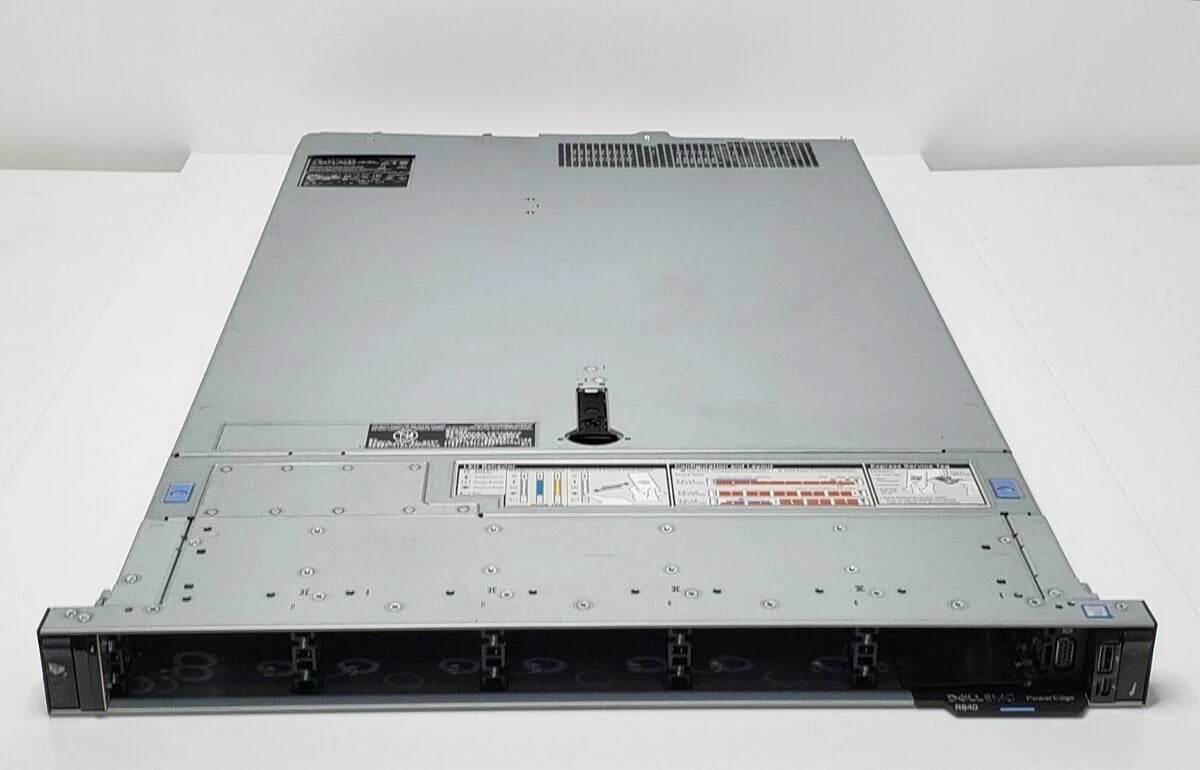
The Dell PowerEdge R640 Rack Server is a compact yet powerful solution designed to deliver high performance, scalability, and reliability. Below is a section-by-section description of its features and advantages, showcasing why it ranks among the best Dell servers.
Processing Power
The Dell PowerEdge R640 supports dual Intel Xeon Scalable processors, offering up to 28 cores per processor. This high processing power ensures exceptional performance, making the R640 one of the best Dell servers for handling complex and demanding workloads. Its robust processing capabilities enable efficient multitasking and support for data-intensive applications, making it ideal for enterprise environments.
Memory Capacity
With support for up to 3TB of DDR4 RAM, the Dell PowerEdge R640 provides extensive memory capacity to meet the needs of modern data centers. This ample memory support is essential for running memory-intensive applications and large-scale virtualization. As one of the best Dell servers for virtualization, the R640 allows multiple virtual machines to run smoothly, ensuring optimal resource utilization and enhanced performance.
Storage Flexibility
The R640 excels in storage flexibility, accommodating up to 10 NVMe drives, or a combination of SAS and SATA drives. This versatility makes it one of the best Dell servers for small businesses and enterprises requiring adaptable storage solutions. The ability to configure various storage options allows for tailored setups to meet specific performance and capacity requirements. RAID configurations further enhance data protection and reliability.
Networking Capabilities
Featuring multiple embedded network ports, including options for 10GbE and 25GbE, the Dell PowerEdge R640 offers robust networking capabilities. These high-speed connections facilitate rapid data transfer and ensure seamless network integration. This makes the R640 one of the best Dell servers for applications needing high bandwidth and low latency, such as data analytics and web services.
Security Features
The Dell PowerEdge R640 incorporates Dell’s Cyber Resilient Architecture, including Secure Boot, System Lockdown, and TPM (Trusted Platform Module). These features protect against cyber threats and unauthorized access, making it one of the best Dell servers for ensuring data integrity and compliance with security standards.
Management Tools
Equipped with iDRAC9 with Lifecycle Controller, the Dell PowerEdge R640 offers advanced management tools for comprehensive remote monitoring and management. These tools reduce the need for on-site IT support and enhance operational efficiency, making the R640 one of the best Dell servers for environments where remote management and automation are crucial.
In summary, the Dell PowerEdge R640 Rack Server is a top-tier choice among the best Dell servers, offering powerful processing capabilities, extensive memory support, versatile storage options, robust networking features, and advanced security measures. Whether for virtualization, small business applications, or data-intensive tasks, the PowerEdge R640 delivers exceptional performance and reliability.
4. Dell PowerEdge R540 Rack Server
The Dell PowerEdge R540 Rack Server is a versatile and cost-effective solution designed to deliver balanced performance and scalability. Below is a section-by-section description of its features and advantages, demonstrating why it is one of the best Dell servers.
Processing Power
The Dell PowerEdge R540 supports dual Intel Xeon Scalable processors with up to 20 cores per processor. This robust processing power ensures efficient performance for a variety of applications, making the R540 one of the best Dell servers for handling diverse workloads in both small and medium-sized businesses.
Memory Capacity
The R540 supports up to 512GB of DDR4 RAM, providing ample memory capacity for running multiple applications and virtual machines. This makes it one of the best Dell servers for virtualization and database management, ensuring smooth and efficient operations.
Storage Flexibility
The Dell PowerEdge R540 excels in storage flexibility, supporting up to 14 3.5” drives or 24 2.5” drives, including options for SAS, SATA, and Nearline SAS. This adaptability makes it one of the best Dell servers for small businesses needing scalable storage solutions. RAID support enhances data protection and reliability.
Networking Capabilities
With embedded dual-port 1GbE and optional network cards, the R540 provides robust networking capabilities. These options ensure reliable connectivity and data transfer speeds, making it one of the best Dell servers for ensuring seamless network integration and efficient data handling.
Security Features
The R540 incorporates Dell’s Cyber Resilient Architecture, including features like Secure Boot and TPM (Trusted Platform Module). These security measures protect against unauthorized access, making it one of the best Dell servers for maintaining data security and compliance.
Management Tools
Equipped with iDRAC9 with Lifecycle Controller, the R540 offers advanced remote management and monitoring capabilities. These tools enhance operational efficiency and reduce the need for on-site IT support, making the R540 one of the best Dell servers for environments requiring streamlined management.
In summary, the Dell PowerEdge R540 Rack Server is a leading choice among the best Dell servers, offering balanced processing power, extensive memory support, versatile storage options, robust networking features, and advanced security measures. Its versatility and reliability make it ideal for virtualization, small business applications, and various other IT needs.
5. Dell PowerEdge R440 Rack Server
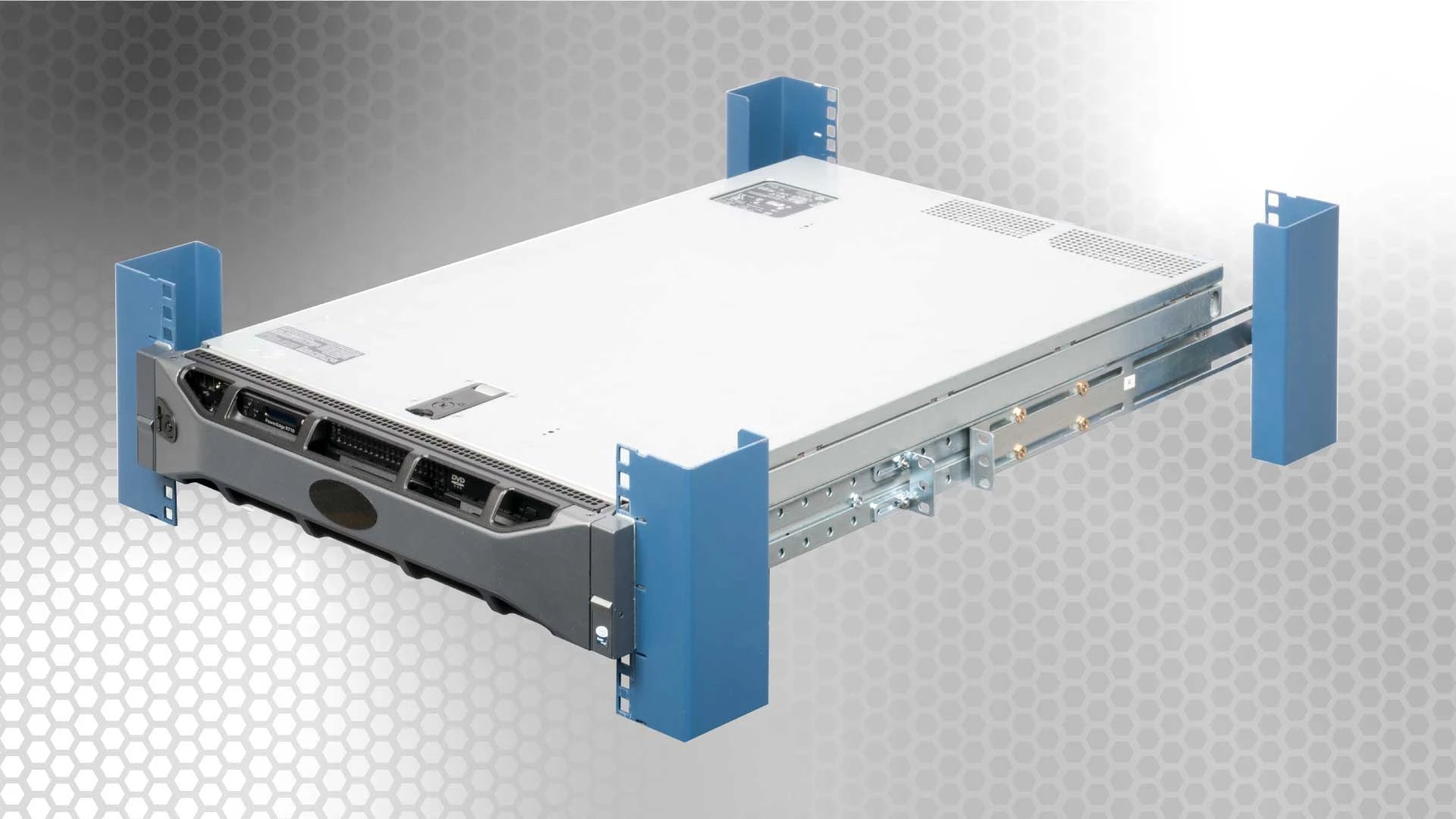
The Dell PowerEdge R440 Rack Server is a compact yet powerful solution designed to deliver high performance, reliability, and scalability. It’s ideal for businesses seeking an efficient server to handle a range of workloads. Below is a detailed description of its features and advantages, alongside references to other models in the PowerEdge series, such as the Dell PowerEdge R630, Dell PowerEdge R640, and Dell PowerEdge R620.
Processing Power
The Dell PowerEdge R440 supports dual Intel Xeon Scalable processors, providing up to 28 cores per processor. This ensures robust performance for demanding applications, making the R440 one of the best choices for intensive computational tasks. Its processing capabilities are comparable to the Dell PowerEdge R640, which also boasts high-performance features for enterprise environments.
Memory Capacity
Supporting up to 512GB of DDR4 RAM, the R440 offers ample memory to efficiently run multiple applications and virtual machines. This extensive memory support is crucial for virtualization and data management tasks, positioning the R440 alongside other high-memory servers like the Dell PowerEdge R630, which is known for its ability to handle large-scale virtualization and database workloads.
Storage Flexibility
The Dell PowerEdge R440 provides versatile storage options, supporting up to 10 2.5” drives or 4 3.5” drives, including NVMe, SAS, and SATA options. This flexibility allows for tailored storage configurations to meet specific business needs, much like the Dell PowerEdge R640, which also offers extensive storage adaptability. RAID support enhances data protection and reliability, making the R440 a dependable choice for data-intensive operations.
Networking Capabilities
The R440 features multiple embedded network ports, including 10GbE and 25GbE options, ensuring high-speed connectivity and efficient data transfer. These capabilities make it suitable for applications requiring robust network performance, akin to the Dell PowerEdge R620, which is known for its reliable networking features in compact form factors.
Security Features
Incorporating Dell’s Cyber Resilient Architecture, the R440 includes features like Secure Boot and TPM (Trusted Platform Module) to protect against unauthorized access and cyber threats. These security measures ensure data integrity and compliance, making the R440 a secure option for businesses.
Management Tools
Equipped with iDRAC9 with Lifecycle Controller, the R440 offers advanced remote management and monitoring tools. These features streamline IT operations and reduce the need for on-site support, similar to the management capabilities found in the Dell PowerEdge R630 and R640.
In summary, the Dell PowerEdge R440 Rack Server is a standout among the best Dell servers, offering powerful processing, extensive memory support, versatile storage options, robust networking features, and advanced security measures. Its compact design and high performance make it an ideal choice for businesses needing a reliable and efficient server solution, while also drawing comparisons to other models like the Dell PowerEdge R630, R640, and R620, which serve various enterprise needs with their unique strengths.
How should you choose Best dell servers?
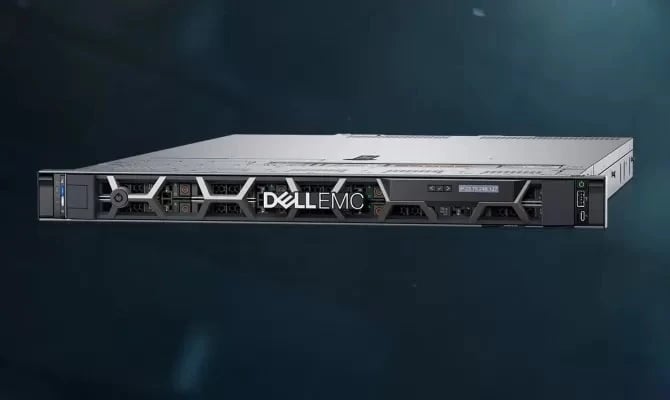
Choosing the best Dell servers for your business involves careful consideration of several key factors to ensure that the server meets your specific needs and enhances your IT infrastructure. Below is a detailed guide on how to choose the best Dell servers.
Determine Your Workload Requirements
The first step in selecting the best Dell servers is to assess your workload requirements. Different servers are optimized for different tasks. For example, if your primary need is to handle intensive computing tasks, the Dell PowerEdge R740, known for its high performance and scalability, might be ideal. For virtualization needs, the Dell PowerEdge R640 offers excellent support for multiple virtual machines, making it one of the best Dell servers for virtualization.
Evaluate Memory and Storage Needs
Consider your memory and storage requirements. Servers like the Dell PowerEdge R740 can support large amounts of RAM, essential for running memory-intensive applications. Similarly, evaluate the type and capacity of storage you need. The best Dell servers offer flexible storage options, including NVMe, SAS, and SATA drives, allowing you to configure the storage to match your performance and capacity needs.
Assess Network Capabilities
Networking capabilities are crucial when choosing the best Dell servers. Ensure the server has sufficient network ports and supports the necessary speeds for your applications. Servers with 10GbE or 25GbE options, like the Dell PowerEdge R440, provide high-speed connectivity and reliable network performance, essential for data-intensive tasks and seamless integration into your existing network infrastructure.
Consider Security Features
Security is a paramount consideration. The best Dell servers incorporate advanced security features such as Secure Boot, System Lockdown, and TPM (Trusted Platform Module). These features protect against unauthorized access and cyber threats, ensuring your data remains secure and compliant with industry standards.
Evaluate Management Tools
Effective management and monitoring tools are vital for maintaining server health and performance. The best Dell servers come equipped with tools like iDRAC9 with Lifecycle Controller, enabling remote management and reducing the need for on-site IT support.
Scalability and Future Proofing
Finally, consider the scalability of the server. The best Dell servers should be able to grow with your business, allowing for easy upgrades to processing power, memory, and storage as your needs evolve.
In summary, choosing the best Dell servers involves evaluating your workload, memory and storage needs, network capabilities, security features, management tools, and scalability. By carefully considering these factors, you can select the best Dell servers that will provide reliable, high-performance solutions tailored to your business requirements.
Conclusion
The best Dell servers offer a comprehensive range of features and capabilities to meet the diverse needs of modern businesses. From high-performance computing to efficient virtualization solutions, Dell's server lineup excels in reliability, scalability, and security. Servers like the Dell PowerEdge R740 and R640 stand out for their powerful processing capabilities, extensive memory support, and flexible storage options, making them ideal choices for demanding workloads and virtualized environments. Additionally, Dell servers prioritize network connectivity with advanced networking features like 10GbE and 25GbE options, ensuring seamless data transfer and efficient network integration. With robust security measures such as Secure Boot and TPM, Dell servers provide peace of mind by safeguarding against cyber threats and unauthorized access. Advanced management tools like iDRAC9 with Lifecycle Controller streamline server management, enhancing operational efficiency. Overall, the best Dell servers deliver exceptional performance, reliability, and scalability, making them indispensable assets for businesses seeking top-tier server solutions.



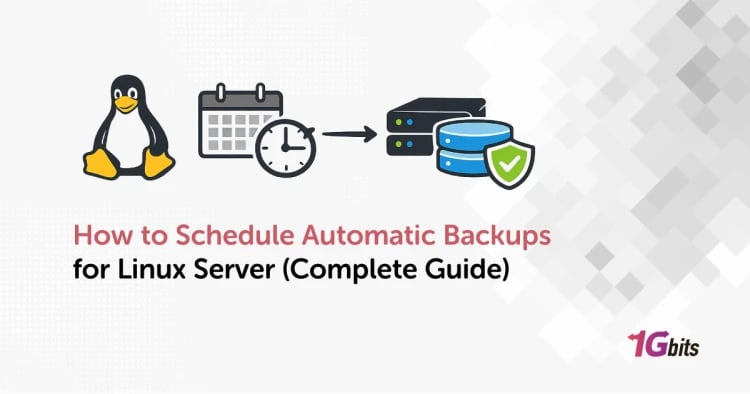
![What Is Cold Data Storage? ❄️ [2026 Guide] What Is Cold Data Storage? ❄️ [2026 Guide]](https://1gbits.com/cdn-cgi/image//https://s3.1gbits.com/blog/2026/02/what-is-cold-data-storage-750xAuto.webp)
![What Is Virtual Desktop Infrastructure? 🖥️ [VDI Explained] What Is Virtual Desktop Infrastructure? 🖥️ [VDI Explained]](https://1gbits.com/cdn-cgi/image//https://s3.1gbits.com/blog/2026/02/what-is-virtual-desktop-infrastructure-vdi-750xAuto.webp)


